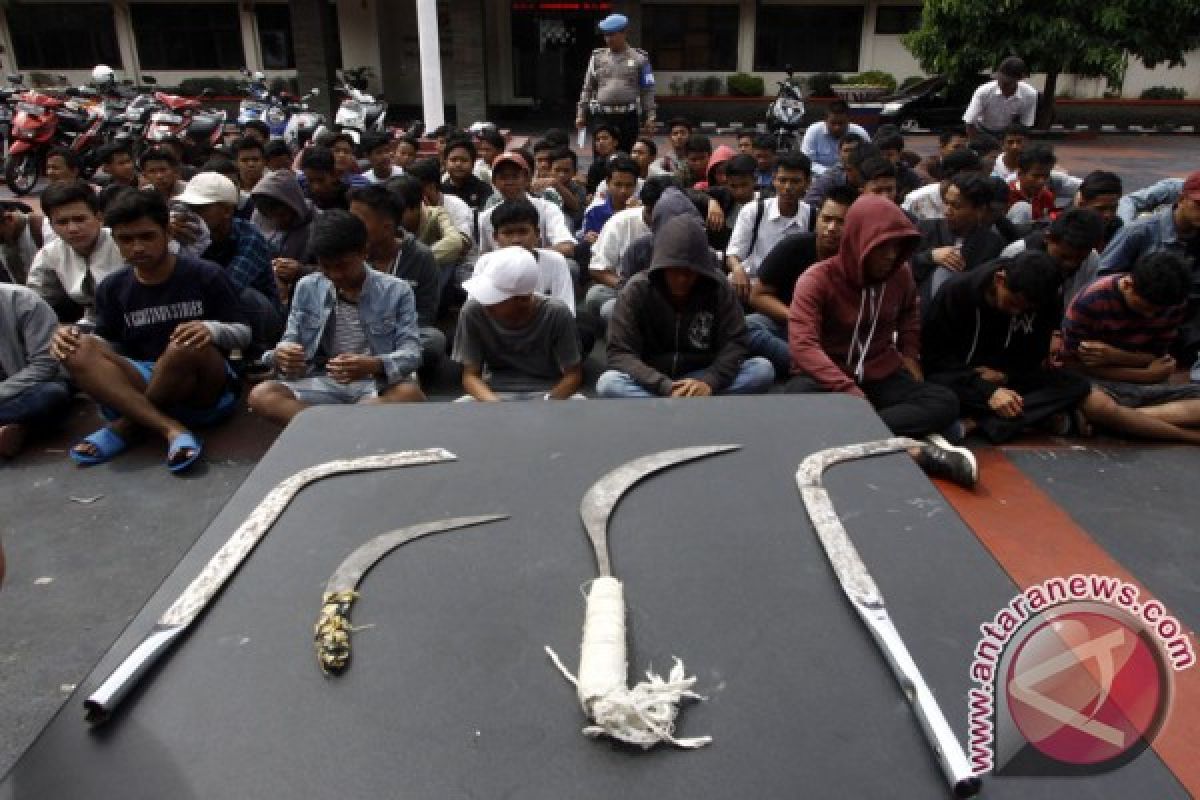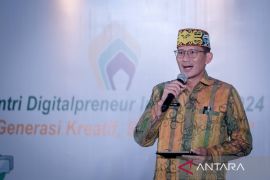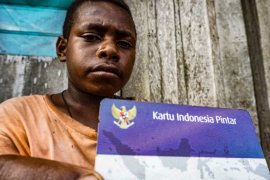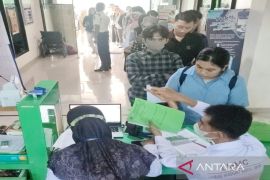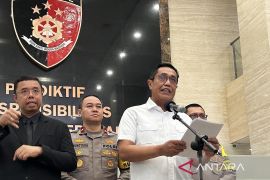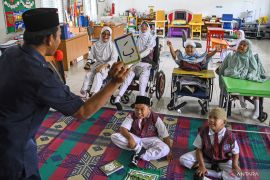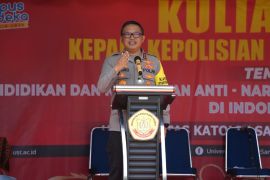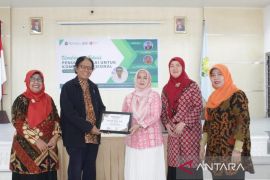Cases of student violence, such as brawls, seem to have become common occurrence and pose a serious problem in major cities, such as Jakarta, particularly due to the use of sharp weapons.
Apparently, no effective formula and way out has been found in an effort to stop clashes among students, as a cycle of violence that occurs in one school and between schools.
The impact caused by student brawls is also wide-ranging, in the form of damage to school and public facilities, loss of lives of the two fighting groups, and the communities around the scene.
The Indonesian Child Protection Commission (KPAI) has recorded that some 202 children were involved in legal cases owing to their involvement in brawls in the span of two years until 2018, including 74 cases of children found to be in possession of sharp weapons.
Earlier, on September 1, 2018, a brawl broke out between groups of teenagers, who were still students of a school on Jalan R. Soepena in Kebayoran Lama Sub-district, South Jakarta, that led to the death of a student.
Hence, KPAI Commissioner Putu Elvina has said that cases of brawls among students that often occur in Jakarta are a cause of major concern.
Elvina believes that law enforcement against brawlers would not be optimal if it was not accompanied by building a positive legal culture.
Moreover, the threat of keeping students involved in brawls out of school will not solve the problem, as it will also have other social impacts.
In light of this, the KPAI commissioner has appealed to schools to not wash their hands off student brawls.
In a written message received in Jakarta on Saturday, Elvina remarked that schools should not deny the right to education to students involved in brawls.
"A system-based solution must be built, so that as long as a student goes through the legal process until a decision is taken in court, he or she should still be able to enjoy the right to education even though via an informal system," Elvina stated.
Hence, she has urged various parties to sit together to find a way out, so that brawls should not become a permanent feature among students in Indonesia.
Educational institutions, as a representation of the state, must be present to ensure that children`s rights are fulfilled and protected despite their legal status.
According to Elvina, parents, educational institutions, and the public must truly act as the agents of change that can erode the culture of violence between students.
It is reasonable to assume that the home environment plays a significant role in the development of a child`s character. Hence, student brawls might be stemming from parental alcoholism, domestic violence, and physical abuse of children. Such things teach them that criminal and violent activities are acceptable.
Also, some educators believe that harsh parental discipline leads to a higher level of aggressiveness in children. Neighborhoods with drug addicts and high crime rates also contribute to violent behavior, which is then exhibited at schools.
The public must now contemplate on why violence often involves the younger generation, loopholes in the education system, and the reasons behind violence still being rampant in the education sector.
However, the education system should not be held accountable for the recent rise in the number of incidents of student brawls.
It cannot be agreed that the increasing number of student brawls in Jakarta is a reflection of the failure of the national education system.
This argument must be based on the fact that most students across the country are not involved in any form of violence and instead have outstanding educational achievements.
Rarely is there any brawl or any form of violence between students in remote areas, so what happened in Jakarta recently should not be generalized.
The rise in student brawls and violence in a big city, such as Jakarta, is believed to be due to degradation of the nation`s cultural values, owing to the influx of unfiltered foreign culture.
Hence, the nation`s cultural values must be cultivated in the hearts and minds of the students in order to offset the negative influence of foreign culture.
Character education, involving discipline, religion, tolerance, and other values, should be imparted to the students, so they think twice before committing any criminal act.
Furthermore, character education includes and complements a broad range of educational approaches, such as all-rounded child education, service learning, social-emotional learning, and civic education.
All share a commitment to helping school children become responsible, caring, and contributing citizens.
Schools that embrace character education become places where people want to be, as they bring out the best in everyone.
In light of this, President Joko Widodo, commonly known as Jokowi, has entrusted teachers with imparting national character education to Indonesian students as a precautionary measure in the face of technological developments that could undermine the culture of the country.
Since students spend considerable time in school, Jokowi remarked that teachers should offer a critically important opportunity to ensure that all students get the required support and help to realize their full potential.
So long as the children are in school, the president stressed that teachers play a role in shaping their character and preparing them for future.
Hence, character education must be integrated into the curriculum as well as school culture, and when this happens and school communities unite around developing character, schools will be able to see witness notable results.
According to the president, character education is an effort to answer the challenge in building the dignity of the nation and strengthening the national identity.
With regard to developments in social media, with all its good and dire impacts, Jokowi said students should be able to control it rather than be at its mercy.
Editing by Rahmad Nasution
Reporter: Otniel Tamindael
Editor: Fardah Assegaf
Copyright © ANTARA 2018
